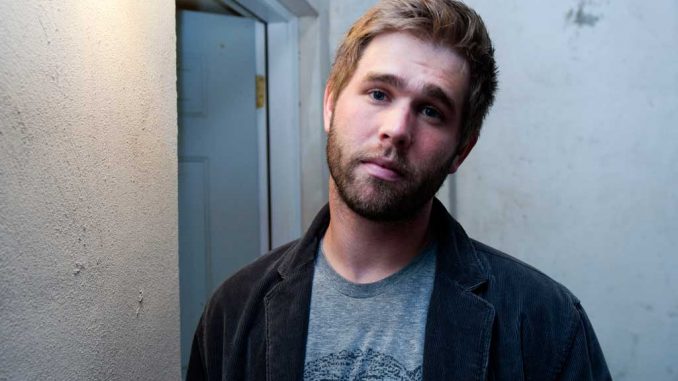
Though collective opinion will tell you that music prodigies who waltzed from the womb singing and playing the guitar are the only ones with a prayer of “making it,” college-football-player-turned-high-school-English-teacher-turned-full-time-musician Ryan Tennis is proving everyone wrong.
Despite finding his artistic passion well after puberty, the former Davidson College football-player’s commitment to his craft has led him to play venues up and down the East Coast as well as in Ireland, Argentina, Thailand, Bangladesh and Costa Rica, and to share those stages with industry heavyweights such as Shawn Colvin, Jonatha Brooke, Ellis Paul and Kenny Loggins.
This year, Tennis has worked tirelessly to create his first full-length album, “Pack Light But Bring Everything,” which he released at a live show at MilkBoy Philly on Oct. 20. Tennis and his band brought his unexpectedly diverse, funky 12-song album to life in a showcase that made his hard work and artistic evolution obvious to those who were familiar with his previous, more acoustic style.
Tennis is refreshingly honest about the artistic challenges of being a full-time musician and the process of music-making that others are either comfortable glossing over – or have forgotten about.
“I just try hard,” Tennis said. “I’m not good at deception and I’m not the world’s most subtle person, it’s just not who I am.”
THE TEMPLE NEWS: When did you get into music?
RYAN TENNIS: I was a football player all the way through college and that was more my identity and then got more into music casually after college just because I was loving it, but I didn’t think anything would really come of it. I was like, “If I ever play a concert, my life would be complete.” I got to do my first iterations of playing shows, mediocre or worse, far away from the place I eventually called home. The early elements happened [in California] but I’ve learned so much from hanging and playing in Philly.
TTN: What did you do before you were working full-time as a musician?
RT: I worked as a fund raiser for the United Way in San Diego for a number of years. I taught high school English. I wasn’t that great of a teacher. I went and taught at the private high school that I went to and I didn’t have to be certified, which was trouble because I didn’t have to know how to teach. My heart wasn’t in it – I like kids and I love reading, but that doesn’t make a great English teacher.
TTN: How was it starting out later in life?
RT: Most musicians and artists go through their early, unseemly stages when they’re a kid or in high school, so people will still say “Oh, what talent!” but when you’re 25 and doing that it’s not cute. When you’re in high school there are hopefully people encouraging you, whereas no one really owes that to you when you’re 26.
TTN: What was it like working with your producer, Pete Donnelly?
RT: The thing we met on immediately was that we didn’t want it to be perfect, we wanted it to be musical. The week we were doing band recordings I got the worst cold of the whole year. We laid down vocal tracks assuming we’d replace them later but ended up keeping most of it anyway. Even though my voice sounded gruff, it sounded musical – you could tell I was part of this band.
I’ve worked with a lot of great producers, but [Donnelly] doesn’t tell you what to do. Instead of saying, “I want you to play this,” he’ll tell us what he wants us to think about or where he wants us to come from. He’s like, “I want the music to tell us what to do, I’m not going to just have some idea about how it’s supposed to sound.”
TTN: Where is the continuity if it’s so diverse?
RT: I think it’s in two things. It’s in the songwriting. The style of the lyrics that I write are just really honest and there’s not a ton of frills. It’s mostly about me or experiences I’ve had. The way I sing and the lyrics are written, I’m not trying to put on any airs, I’m trying to sing and speak in as honest a voice as I can. The other thing is that there’s just a really strong groove.
TTN: What do you want people to feel when they listen to the album?
RT: I want their toes tapping. I want people to be moving. When I go see live music I want to go see a band that’s funky as hell – something with a good groove. It’s fun to see a singer-songwriter with [an] acoustic guitar but eventually that can get boring. Rhythm is the best way to get them there.
It’s pretty conversationally written. Hopefully there’s some more depth and truth that you can reveal things on more than one level. The emotional and lyrical and rhythmic energy are all coming from the same place and feel cohesive both to express a feeling and to hopefully elicit that feeling.
Victoria Marchiony can be reached at vmarchiony@temple.edu.


Be the first to comment